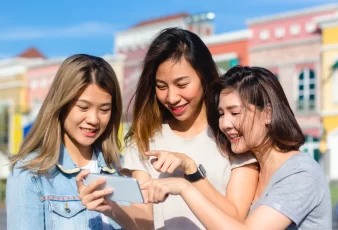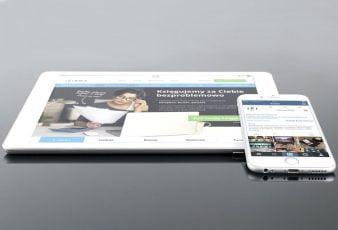In today’s digitally connected world, social media has become an indispensable tool for politicians looking to connect with their constituents and gain support for their political endeavors. With the ever-increasing popularity of platforms like Facebook, Twitter, Instagram, and LinkedIn, harnessing the power of social media is no longer an option but a necessity for any political campaign.
Here Are Seven Prime Reasons Why You Should Be Utilizing Social Media As Part Of Your Political Strategy

In this blog post, we will explore seven compelling reasons why utilizing social media should be an integral part of your political strategy and how you can navigate the political landscape with a consulting firm.
1. Unparalleled Reach And Accessibility
Social media platforms boast billions of active users worldwide, offering unparalleled reach and accessibility to potential voters. Unlike traditional media, which requires significant financial investments and is limited in scope, social media allows politicians to engage with a broad and diverse audience without geographical boundaries.
Sharing your message and ideas on these platforms allows you to instantly connect with voters, regardless of location, demographics, or socioeconomic background.
2. Cost-Effective Campaigning
Traditional political campaigns can be prohibitively expensive, making it challenging for newcomers or candidates with limited resources to compete effectively. Additionally, social media levels the playing field by providing a cost-effective alternative to reaching voters. Creating and maintaining profiles on platforms like Twitter and Instagram is usually free, enabling politicians to allocate their resources more efficiently and maximize their campaign budgets.
3. Real-Time Communication And Engagement
One of the most significant advantages of social media is its real-time communication capabilities in the political landscape. Similarly, politicians can post updates, share news, and engage with their audience instantaneously.
This fosters a sense of transparency and accessibility, as voters can easily interact with candidates and ask questions about their policies and visions for the future. In the same vein, politicians can build trust and establish strong connections with their constituents by responding promptly to messages and comments.
4. Targeted Messaging And Analytics
Social media platforms provide sophisticated analytics tools that offer invaluable insights into voter preferences, behaviors, and demographics. Further, leveraging this data allows politicians to tailor their messaging for specific population segments. Moreover, by creating targeted content, you can appeal to different groups based on their interests and concerns, increasing the likelihood of garnering support from various demographics.
5. Amplify Grassroots Movements
Above all, social media is a breeding ground for grassroots movements, where passionate individuals can rally around a cause and amplify their voices collectively. As a politician, you can leverage these online communities to build momentum around your campaign. Certainly, engaging with grassroots supporters can help spread your message organically, generating buzz and drawing attention to your political initiatives.
6. Crisis Management And Reputation Building
In the fast-paced world of politics, crises, and controversies can arise anytime. Most importantly, social media provides a platform for politicians to respond to negative press and address concerns directly. By swiftly and transparently managing crises, politicians can mitigate damage to their reputations and maintain public trust. Moreover, social media allows candidates to build a positive image over time by consistently sharing their accomplishments, values, and goals with the public.
7. Ability To Showcase Authenticity And Personality
Unlike traditional media, where politicians’ appearances are often scripted and controlled, social media enables candidates to showcase their authenticity and personality.
This is to say, politicians can humanize themselves by sharing behind-the-scenes glimpses into their lives. The diverse interests and hobbies, making them more relatable to voters. In other words, this human touch fosters a sense of connection and trust, creating a lasting impact on the hearts and minds of potential supporters.
Conclusion
To sum up, the significance of social media in the modern political landscape cannot be overstated. Certainly, its unparalleled reach, cost-effectiveness, and real-time communication capabilities make it an indispensable tool for aspiring politicians.
By leveraging social media, you can connect with voters and tailor your message. To amplify your grassroots support, manage crises, and establish an authentic and relatable persona. As a result, embracing social media as part of your political strategy will enhance your campaign’s effectiveness. To ensure you remain relevant and engaged in the ever-evolving digital landscape.
Read Also:




























